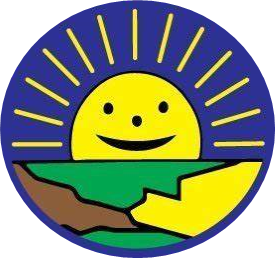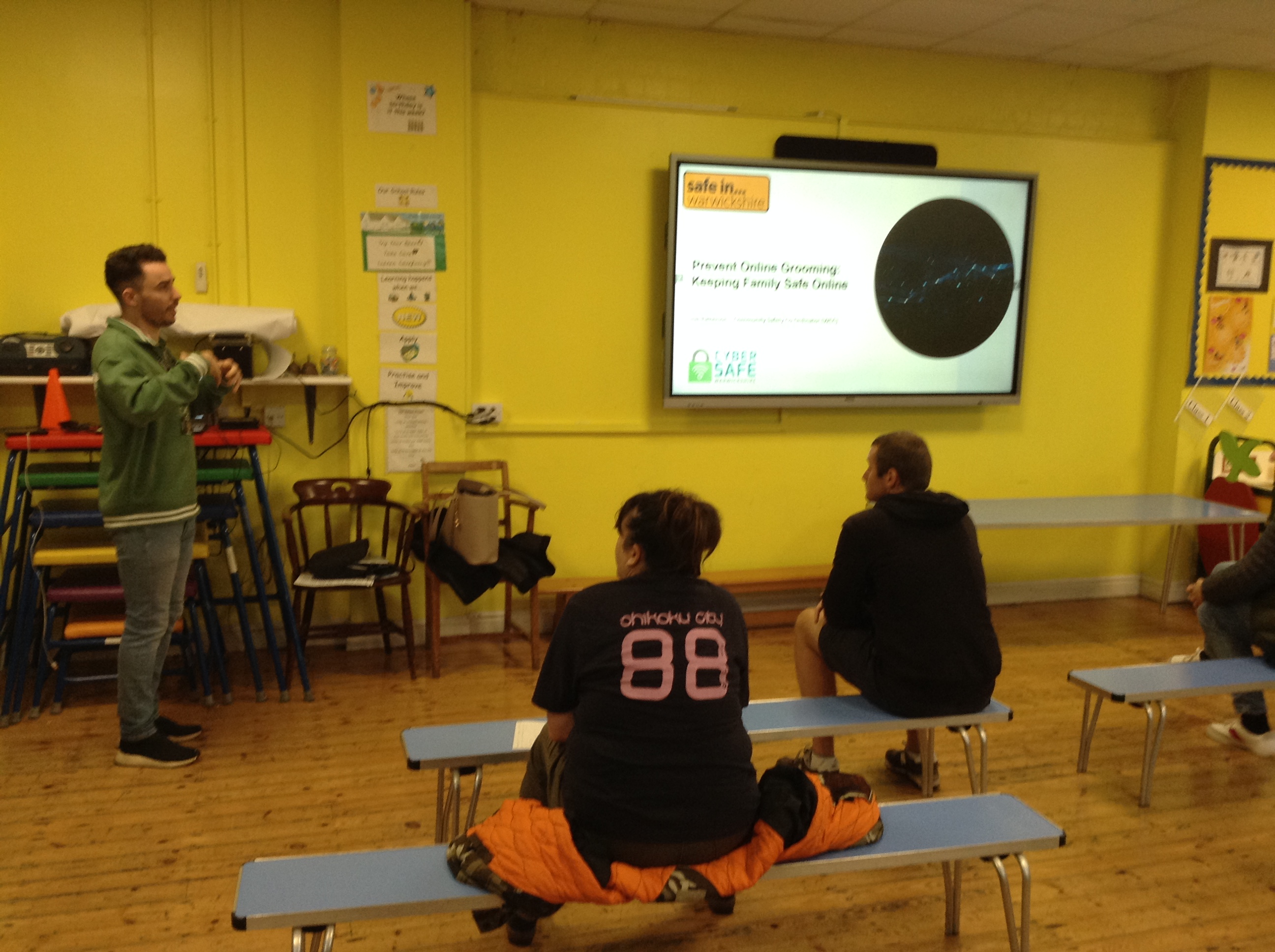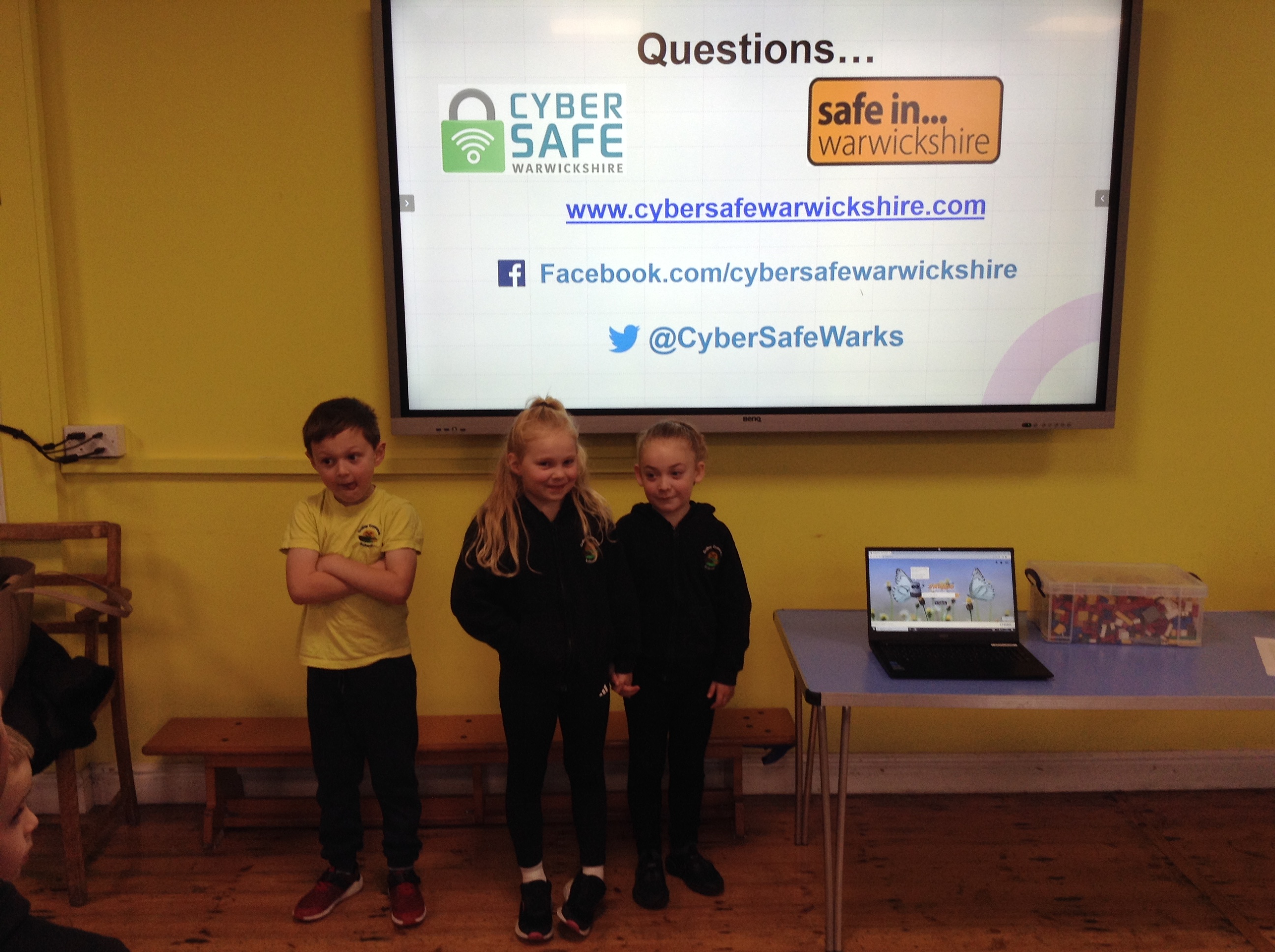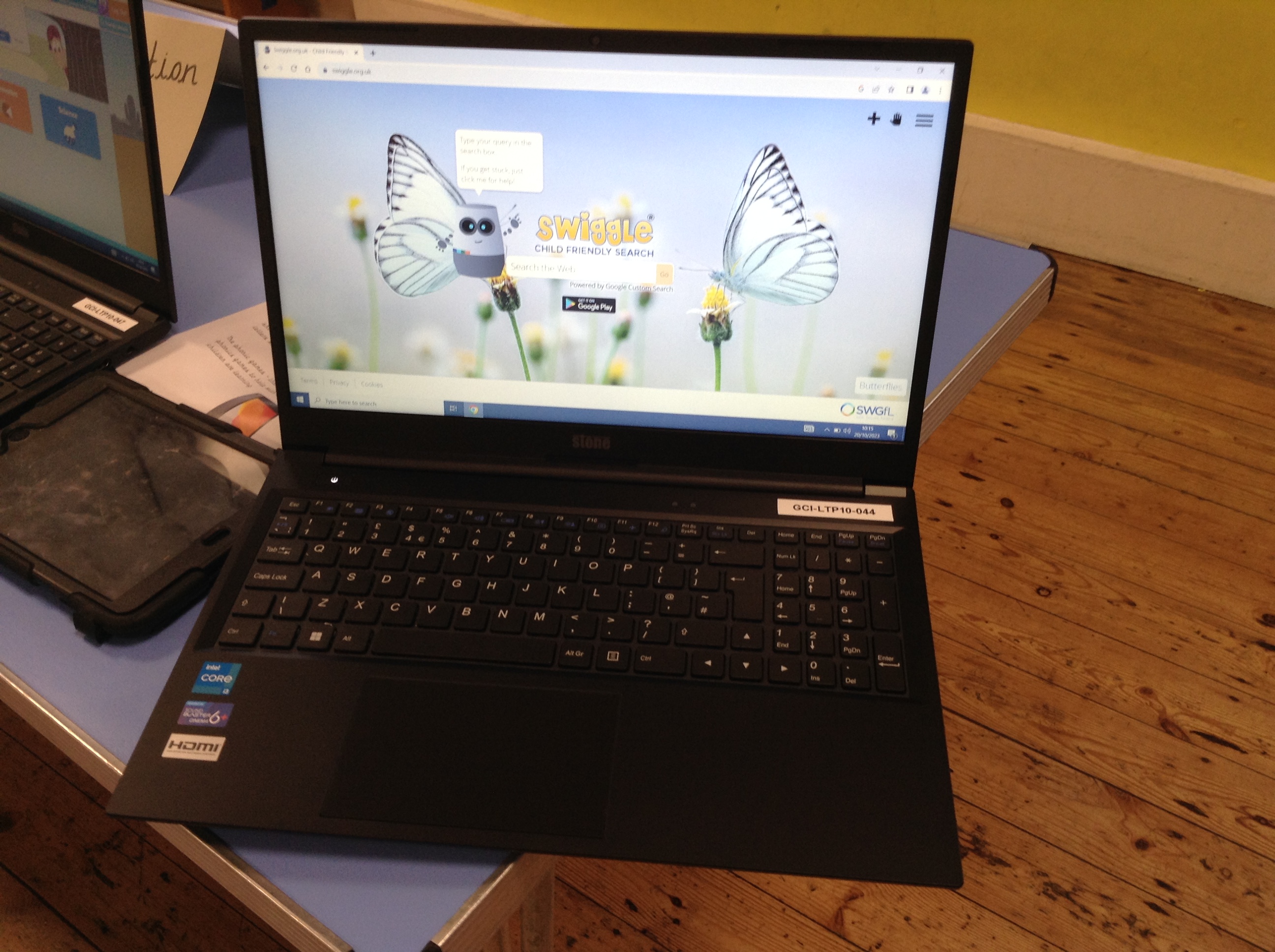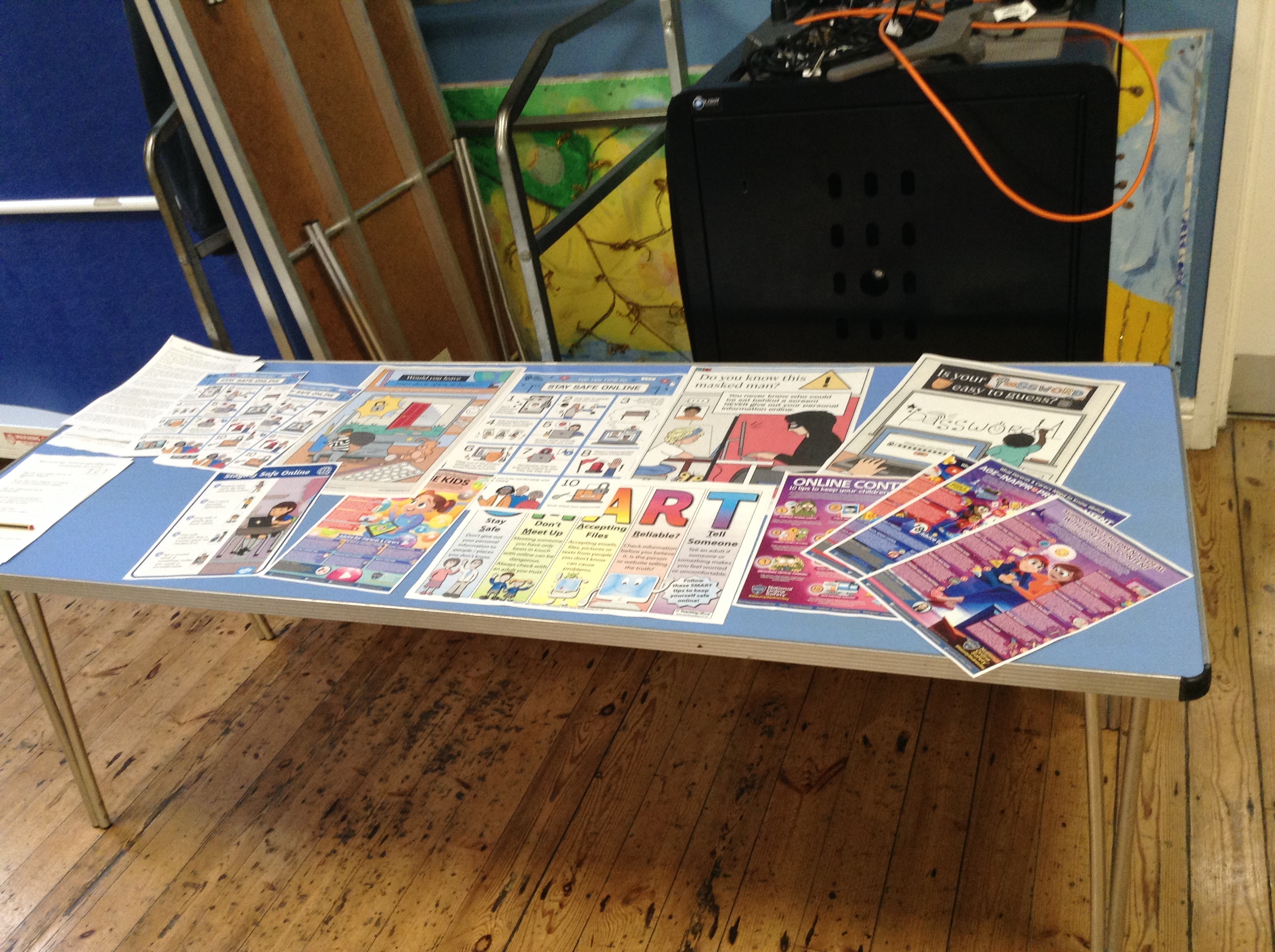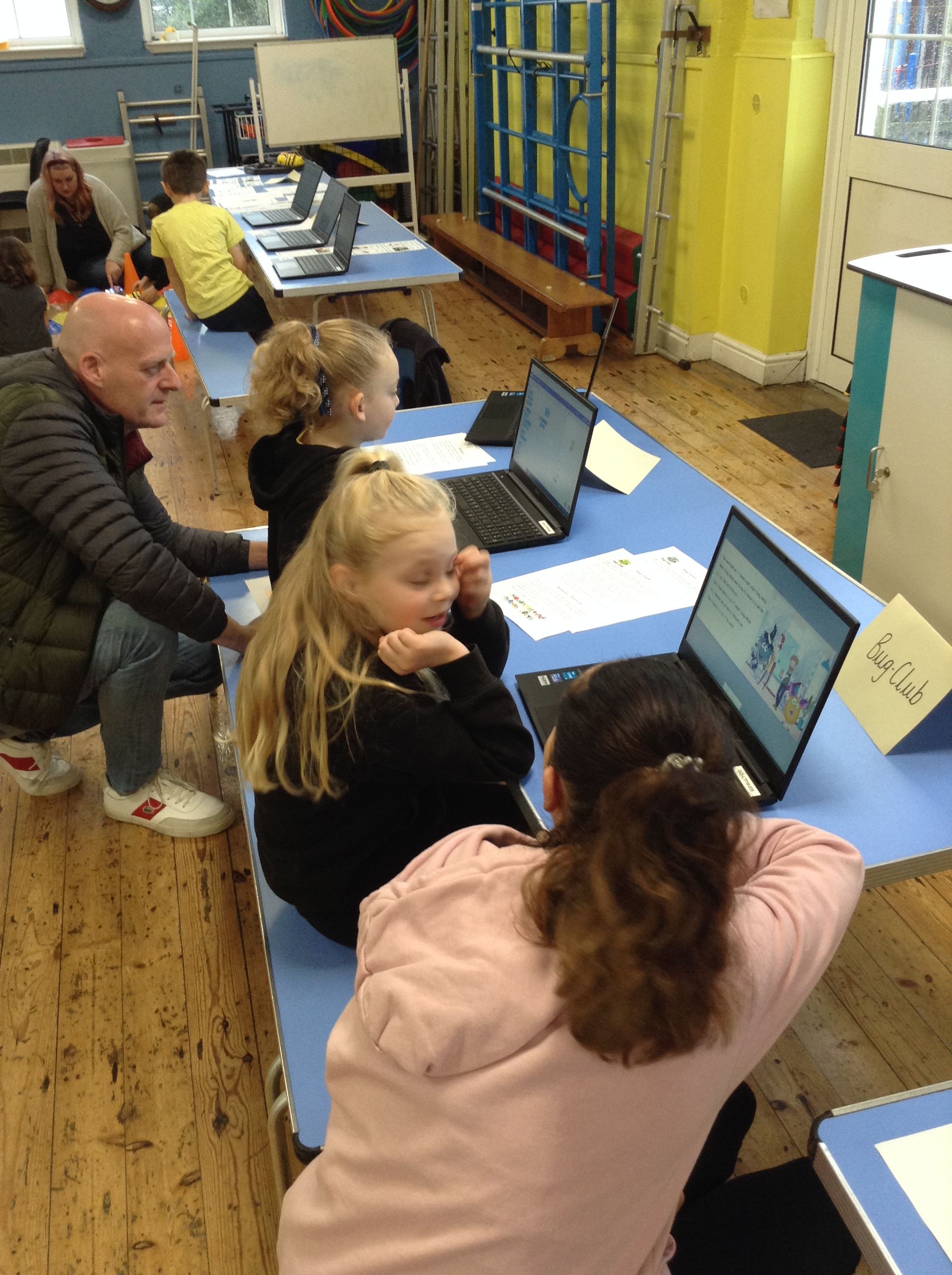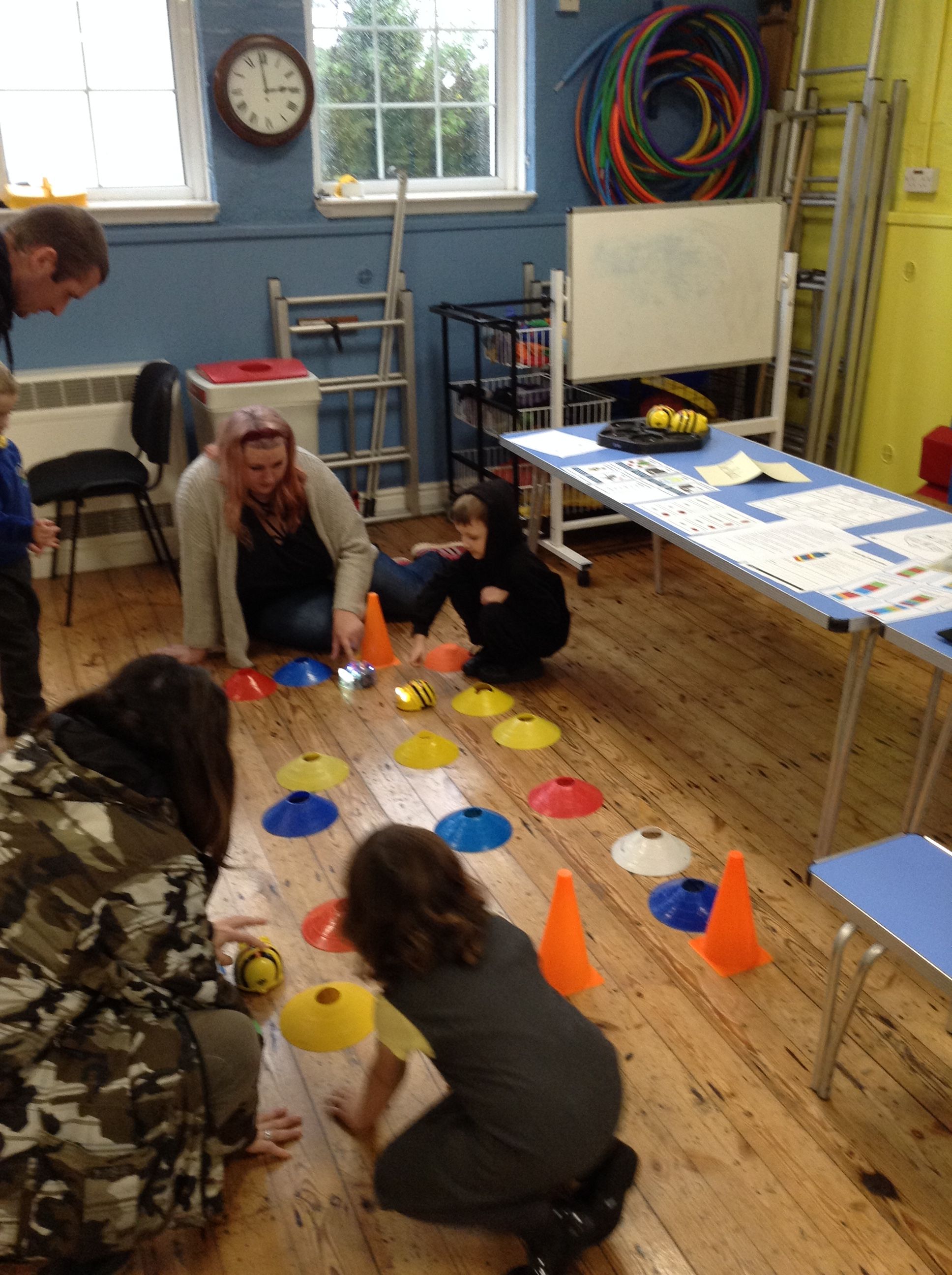Computing and Online Safety
Computing
The use of computers and understanding digital literacy is an integral part of the National Curriculum and is a key skill for everyday life. Computers, tablets, programmable robots, digital and video cameras are a few of the tools that can be used to acquire, organise, store, manipulate, interpret, communicate and present information. At Galley Common Infant School we recognise that pupils are entitled to quality hardware and software and a structured and progressive approach to the learning of the skills needed to enable them to use it effectively. The purpose of this policy is to state how the school intends to make this provision.
Aims
· Provide a relevant, challenging and enjoyable curriculum in Computing for all pupils.
· Meet the requirements of the National Curriculum programmes of study for Computing.
· Use skills, software and hardware as tools to enhance learning throughout the curriculum.
· To respond to new developments in technology.
· To equip pupils with the confidence and capability to use a range of computing skills throughout their later life.
· To enhance learning in other areas of the curriculum using computing.
· To develop the understanding of how to use hardware and software safely and responsibly.
. To give the skills to children to understand their responsibility for staying safe online
Computing curriculum Intent, Implement and Impact statement.
Intent –
At Galley Common Infant school we want to instil a sense of enjoyment around using technology and develop pupils appreciation of its capabilities and the opportunities technology offers to create, manage, organise and collaborate. They will work with software and programs that form a part of the ethos of the scheme of work as well as developing pupils’ confidence when encountering new technology, with is a vital skill in the ever evolving and changing world of technology. Through our curriculum, we intend for pupils to become digitally competent and have a range of skills which they will continue to develop in their later school years. We also endeavour for the pupils to be responsible online citizens.
The scheme of work enables pupils to meet the national curriculum requirements outlined for the end of KS1. We also ensure that we satisfy all the objectives laid out in the DfE’s Education for a Connected World framework. We ensure that children are taught an understanding of life in the digital world including the appropriate online behaviour, copyright, being discerning consumers of online information and a healthy use of the Internet.
Implementation –
The national curriculum purpose of study states:
‘A high-quality computing education equips pupils to use computational thinking and creativity to understand and change the world. Computing has deep links with mathematics, science, and design and technology, and provides insights into both natural and artificial systems. The core of computing is computer science, in which pupils are taught the principles of information and computation, how digital systems work, and how to put this knowledge to use through programming. Building on this knowledge and understanding, pupils are equipped to use information technology to create programs, systems and a range of content. Computing also ensures that pupils become digitally literate – able to use, and express themselves and develop their ideas through, information and communication technology – at a level suitable for the future workplace and as active participants in a digital world.’
At Galley Common Infant school we use Pruple Mash scheme of work which is designed with three strands that run throughout the scheme-
- Computer science
- Information technology
- Digital literacy
(and Online safety is taught throughout the curriculum and the year)
The coverage document shows which area is the main focus in each unit of work.
The progression of skills document show the build up from each year group to the next, ensuring skills are being build upon year on year.
Early Years (Reception) Rather than a scheme with set lessons, the early years resources are designed to integrate into the day-today routine and set-up of an early years setting with opportunities for using Mini Mash or Purple Mash as part of the Early Years curriculum to support children in working towards early learning goals. In addition, there are units of suggested ideas that focus on computing skills specifically, that can also be provided as opportunities for learning as part of the topics in other areas to give children a sound basis to explore topics using technology and to be ready for progressing through the Computing curriculum. These are as follows and are designed to be integrated and linked to wider early years curriculum areas. These have been loosely classified into the three streams but there is overlap between all three streams

EYFS

The units are designed to cover each area and have a focus on:
Computer system, programming, creating media, data handling and Online safety.
Knowledge organisers for each unit with key vocabulary and skills on help the children build a foundation of factual knowledge by encouraging a recall of facts.
Impact –
The impact of the scheme of work is monitored through formative and summative assessment opportunities.
After implementation of the computing curriculum pupils should leave KS1 with a good basis of skills to be build upon in KS2.
They should have;
- basic computer literacy skills
- Be able to problem solve
- Understand the importance of computers going forward in their school and personal life (and beyond)
- Understand a balance of using technology and time spent away from it.
- Understand that technology can be used to show their ideas and creativity.
- Know that there are different software that can help them showcase their work.
- Be able to use technology individually and as part of a collaborative team
- Be aware of online safety issues and what to do if they have a problem online.
- Meet the end of KS1 expectations
Foundation Stage
By the end of the Foundation Stage children should recognise that a range of technology is used in places such as homes and schools and they can select and use technology for particular purposes. It is important in the Foundation Stage to give children a broad, play-based experience of computing skills in a range of contexts. It is not just about computers. Early years learning environments should feature scenarios based on experience in the real world, such as in role play. Children gain confidence, control and language skills through opportunities to ‘paint’ on the whiteboard or programme a toy. Recording devices can support children to develop their communication skills. This is particularly useful with children who have English as an additional language.
The KS1 National Curriculum Programme of Study aims to ensure that pupils :
- understand what algorithms are; how they are implemented as programs on digital devices; and that programs execute by following precise and unambiguous instructions
- create and debug simple programs
- use logical reasoning to predict the behaviour of simple programs
- use technology purposefully to create, organise, store, manipulate and retrieve digital content
- recognise common uses of information technology beyond school
use technology safely and respectfully, keeping personal information private; identify where to go for help and support when they have concerns about content or contact on the Internet or other online technologies.
Purple mash
Purple mash is the scheme of work that is followed at Galley Common infant school. This is to make sure the children are exposed to all the areas of the national curriculum. They will have access to a range of software to help them practice the skills that they have been learning about.
2Simple - Year 1 overview 2023
- Year 1 - All units - Knowledge Organisers 02 2023.pdf
- Year 1 Computing Vocabulary.pdf
- Purple Mash Scheme of Work Year 1 Overview.pdf
2Simple - Year 2 overview 2023
- Year 2 Computing Vocabulary.pdf
- Year 2 Knowledge Organisers All Units 02 2023 f.pdf
- Purple Mash Scheme of Work Year 2 Overview.pdf
Online Safety
Online safety is at the heart of all of our computing lessons, and we regally remind the children about how to stay safe online throughout the year. We have dedicated lessons on how to stay safe online and user agreements for the children on what they need to do when using technology.
We also have parent meetings to help children stay safe online not just in school but give the tools parents need to keep the children safe online at home.
Galley Common School also encourages parents to contact us any advice or support is required when going online with your children.
Online Safety workshop - October 2023
Parents were invited into school to attend a cyber crime safe workshop ran by Joe Patterson for Warwickshire County Council. They then had a presentation from Mrs Moynihan about what we do in school on Online Safety. The e-safety team then said some words to the parents reminding them how to stay safe online. Finally, the parents were able to use some of the apps and equipment we use in school with their child.
Safer Internet Day Learning - 2023
 |
 |
|
|
|
|
|
|
Year 1 creating instructions using the Ipad
 |
 |
 |
 |
 |
 |
